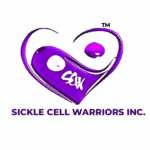 It has been 2 weeks since the last edition, and this fortnight; the news focuses on poor decisions at the A&T State University which led to an unnecessary sports-related death, a new genetic testing kit, a new drug acquisition merger and a shocking scandal at the National Heart, Lung and Blood Institute…
It has been 2 weeks since the last edition, and this fortnight; the news focuses on poor decisions at the A&T State University which led to an unnecessary sports-related death, a new genetic testing kit, a new drug acquisition merger and a shocking scandal at the National Heart, Lung and Blood Institute…
Despite the NCAA recommendation that ALL athletes must be screened for sickle cell trait/disease, Officials at North Carolina A&T State University in Greensboro say the school’s top athletic trainer counseled coaches to save money by not testing for sickle cell trait days before a student died from the disease. The News & Record of Greensboro reported that the school’s chief athletics trainer e-mailed coaches Aug. 17 asking them to test only students “who made their teams, not those trying out.” This is especially tragic because just 2 days later, Jospin “Andre” Milandu, a 20-year-old student, died after collapsing on the university track during a track team tryout. He had sickle cell trait…and his death could have been prevented with a $3-23 test at the health center. The athletic trainer has since ‘retired’ but this incidence serves as a benchmark to all coaches. Don’t skimp on screening for sickle cell!!! Read more about this sad story HERE.
Researchers at the Drexel University College of Medicine in Philadelphia have just perfected a genetic sampling kit that can screen for the possibility of sickle cell disease, as well as 448 other hereditary conditions. The kit costs about $378 currently, but if made for consumer use, the cost might go up. The test, combined with genetic counseling, would allow couples to have pre-conception screening so they could make informed reproductive choices thereafter. Genetic conditions are responsible for 10% of all pediatric admissions and lead to 20% of infant deaths in the United States.
Most tested couples would be found not to be at risk of having a child with any of the disorders tested and would be reassured by this information. A small proportion of tested couples would find that they were at risk of having a child with a rare genetic disorder, and this information may help them in their reproductive decision-making.
Of course, this opens the window for the ‘eugenics’ argument, where some might argue that the screening is a way of altering conception, and in essence creating perfect test tube babies without any genetic ailments, and getting rid of those that do have these conditions. (Most of these people do not have sickle cell…so they can waste time arguing about such matters). It is not conclusive whether this kit will be available for mass usage in the near future, but hopefully genetic counselors will be able to provide the option for the parents who are at risk. Read more about this HERE.
On the business side of things, Adventrx (a San Diego based pharmaceutical company), has just acquired a new drug company, which has TPC as it’s principal drug. TPC, which has received an orphan drug designation from the FDA, is a molecule that lowers the surface tension of water in the blood, making the cells more slippery and less prone to clumping, Adventrx said. The plan is that Adventrx will put about $15-20million into the phase 3 clinical trials and speed TPC on the way to use by sickle cell patients. Read more about the acquisition HERE. One step closer…
There is scandal and drama over at the National Heart, Lung and Blood Institutes! Last year, Dr. Bonds, the principal Sickle Cell Disease research director, found out that the NHLBI was using the blood of sickle cell patients enrolled in clinical trials to create immortalized cell lines for future study without proper informed consent. In her belief, this is illegal, and as the project director, she instituted a policy to destroy these cells and reported this oversight to the administration. However, she was met with resistance, and was basically black-balled by the administration not to destroy the cells, and then fired a few months later. Dr. Bonds had gone up the chain of command in reporting the incident, and when this didn’t work, she went to the oversight board to file a complaint about the improper practices. She took the case to court, and won the right to a federal court trial. We will be following this case with marked interest but we want to know, after reading the article, whose side are you on? If it was your blood being used without consent, how would you feel? Share your thoughts in the comments section.
